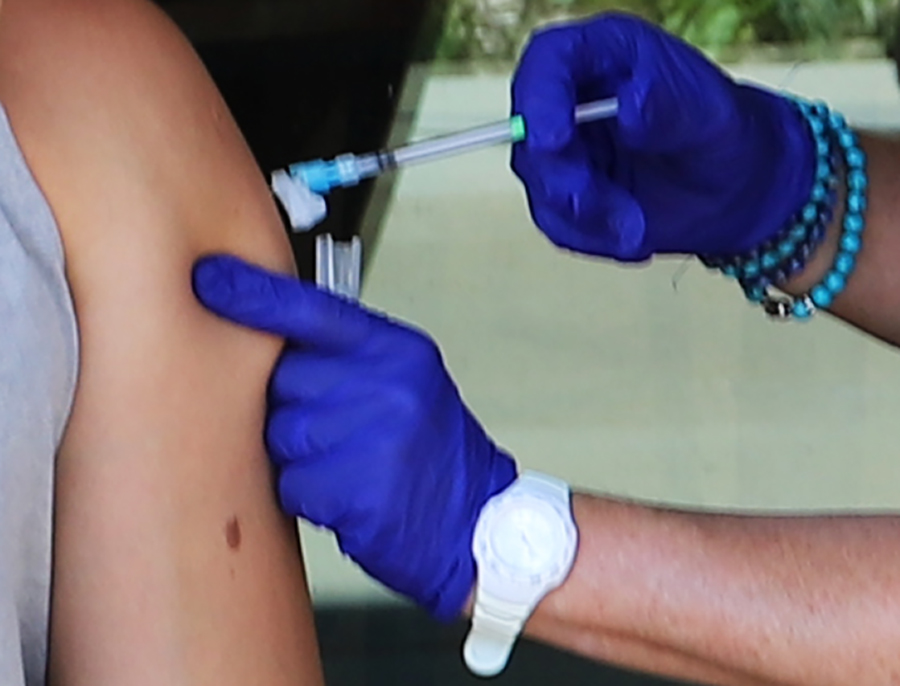Diné College public health students provide vaccine education to Navajo Nation residents through study

Though the Navajo Nation has been a U.S. leader in COVID-19 vaccine uptake throughout most of the COVID-19 pandemic, vaccine hesitancy does exist there.
Through a grant from the National Institutes of Health, a research team from the Navajo Native American Research Center for Health (NARCH) Partnership will be working with Diné College public health students to address adults’ vaccine questions and hesitancy to increase the number of vaccinated people across the Navajo Nation. The Navajo NARCH Partnership is a collaboration between Diné College, a tribal college of the Navajo Nation, and Northern Arizona University.
On the project are: Nicolette Teufel-Shone, associate director, NAU Center for Health Equity Research (CHER) and professor in the NAU Department of Health Sciences; Jamie Wilson, CHER research associate; Marissa Tutt, CHER research coordinator; Chassity Begay and DeeDee James, NAU graduate students in the Master of Public Health program, Indigenous Health track; Mark Bauer, professor at Diné College; Carmella Kahn, assistant professor at Diné College; Christopher Dickerson, assistant professor at Diné College; and Amber-Rose Waters, project coordinator with Diné College’s public health program.
The study, Diné Teachings and Public Health Students Informing Peers and Relatives about Vaccine Education (RAVE), has three goals:
- Document vaccine hesitancy stories from a minimum of 25% of Diné College’s students, faculty, and staff and log their perception of their peers’ and family members’ vaccine hesitancy.
- Train a minimum of 35 Diné College public health students as health messengers able to provide culturally centered, scientifically valid education about vaccine safety to a minimum of 10 Navajo Nation residents each.
- Document change in a minimum of 350 Diné adults’ knowledge of vaccine safety after receiving the education provided by a health messenger.
“This project gives undergraduate public health students an opportunity to gain direct experience with community-based health education and as emerging public health professionals, to contribute to reducing the spread of COVID-19 on the Navajo Nation,” Teufel-Shone said.
Multiple research studies have proven that trusted health messengers offering culturally centered health education to people on the Navajo Nation effectively leads to behavior change. Using this information, the research team will first interview Diné Traditional Knowledge Holders to document cultural teachings that address individual and collective health behaviors to inform the development of the materials for the health messengers.
Diné public health students will then be trained as health messengers to deliver culturally centered, scientifically accurate vaccine safety information and use Diné-specific relationships and etiquette to talk to peers and relatives who self-identify as vaccine hesitant.
The Navajo NARCH Partnerships is funded by the National Institute of Health’s National Institute of General Medical Sciences (3S06GM123550-04S1).